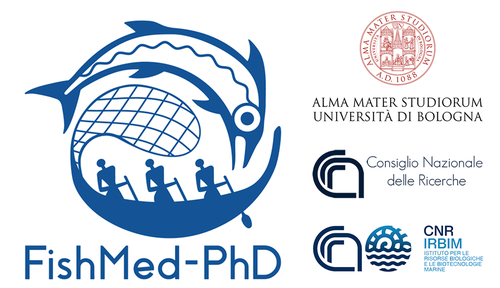- Home
- News
- ABOUT US Apri sottomenù
- Facilities and equipment Apri sottomenù
- RESEARCH Apri sottomenù
-
International PhD
Apri sottomenù
- Topics
- Academic Board
- Council
- Board of Advisors
- PhD Program Single Annual Datasheet - SUA-PHD
- Specific training activities for the FishMed-PhD program: course units
- Soft skills, Seminars, Laboratory activities
- Teaching week 2025
- Teaching week 2024
- Teaching week 2023
- Teaching week 2022
- Teaching week 2021
- FishMed-PhD students
- FishMed-PhD paper
- Call for applicants 41° FishMed-PhD
- Call for applicants 40° FishMed-PhD
- Call for applicants 39° FishMed-PhD
- Call for applicants 38° FishMed-PhD
- Call for applicants 37° FishMed-PhD
- Call for applicants 36° FishMed-PhD
- Call for Applicants 35° FishMed-PhD
- Call for Applicants 34° FishMed-PhD
- Final Exam FishMed-PhD 36th cycle
- Final exam FishMed-PhD 35th cycle
- Final exam FishMed-PhD 34th cycle
- Collaborations
- CONTACT
International PhD
“Innovative technologies and sustainable use of Mediterranean Sea fishery and biological resources” (FishMed-PhD)

"Innovative technologies and sustainable use of Mediterranean Sea fishery and biological resources” (FishMed-PhD)
FishMed-PhD program is international. At least 25% of its Academic Board is made up of professors and researchers belonging to qualified foreign universities or research centers: Bar-Ilan University (Israel), The Hebrew University of Jerusalem (Israel), Institute of Oceanography and Fisheries (Croatia), University of Amsterdam (Netherlands), University of Burgundy (France), Mediterranean Institute for Advanced Studies (Spain), Hellenic Center for Marine Research (Greece), University of Copenhagen (Denmark) and Ruder Boškovic Institute (Croatia). The selection process will also take on an international character, positively evaluating the scientific excellence of candidates, such as scientific publications in journals with Impact Factor, participation in international conferences, and reference letters for any research periods spent in abroad institutes. In addition, young high-profile graduates will be selected through networks that promote employment growth in the Mediterranean region. In addition to Euraxess, open positions will be published on specific websites that improve the development of employment in the southern Mediterranean countries (eg HOMERe - High Opportunity for Mediterranean Executives Recruitment). FishMed-PhD program requires a compulsory research period abroad, of at least three months, to promote a better understanding of the existing realities and of the ways of managing marine biological resources at an international level.
Learning outcomes
Although the issue of fisheries is a priority on the European Agenda, this topic has never been addressed in dedicated high-level education programs. FishMed-PhD primarily focuses on fishing activities in the Mediterranean Sea, both in terms of understanding their impact on ecosystems and how they are interconnected with the marine environment and influenced by other drivers of change (e.g., climate change – ocean acidification and warming, invasive species, pollution) and other human activities. FishMed-PhD trains a new generation of managers who are equipped not only with knowledge of innovative technologies, the biology of targeted fish species, and blue biotechnologies, but also an understanding of the importance of minimizing human impacts while maintaining economic performance. Students engage in interdisciplinary research activities, alternating experiences in specialized courses and utilizing the most advanced methodologies. They develop skills in disseminating and communicating scientific knowledge. Students share findings on the status of biological resources and the marine ecosystem with a wide range of political and social actors (policymakers, managers, and stakeholders) who urgently require this information for the implementation of management strategies.
Job opportunities and potential areas of employment
The oceans are the driving force of the economy and represent a great potential for innovation and growth. The European Union's "blue economy" employs over 4 million people, generating a turnover of more than 650 billion euros annually. The "Sustainable Blue Economy" is the EU's strategy to support the sustainable development of the marine and maritime sectors as a whole. Aquaculture, tourism, marine biotechnology, fishery and marine resource management, and environmental management are examples of blue economy sectors with significant growth potential. These expanding sectors create a high demand for researchers, engineers, managers, and environmental economists at local, national, and international levels. Developing the necessary skills for the growth of the blue economy is a priority of the European Commission's Mission Starfish 2030 and the National Recovery and Resilience Plan (PNRR). The latter must contribute to achieving European environmental objectives through the sustainable use and protection of marine resources, the transition to a circular economy, pollution prevention, and the protection and restoration of coastal areas. FishMed-PhD trains young researchers to meet these needs through extensive intersectoral and interdisciplinary interactions. The skills acquired are applicable to various professions related to environmental consulting and management, ecosystem service evaluation, socio-economic risk assessment, and public administration. Doctoral students study and select specific indicators of changes in the marine environment and the sustainable use of its resources, aimed at analyzing the socio-economic implications of these changes, providing valuable insights to businesses and policymakers. They participate in workshops and conferences, gaining networking opportunities in both the private and public sectors. After completing their doctorate, they can become European leaders in the sustainable management of the marine environment and its resources.